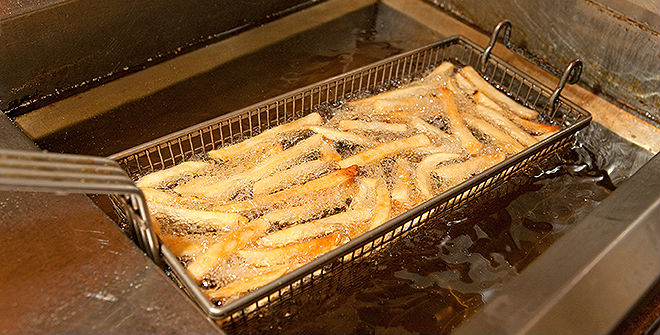
Column: Potato industry pushes ahead in fight against acrylamide
In the years following acrylamide’s infamous rise to fame — helped along by a lawsuit leveled against four fry and chip makers — the industry has risen to the challenge and made substantial headway in addressing the issue.1,2
All told, we’ve reached meaningful reductions in acrylamide levels, the result of concerted research and development between breeders, growers and processors.3
The National Fry Processor Trials (NFPT), overseen by Potatoes USA, is a program that has fostered just these sorts of partnerships. It also helped fundamentally shift the status quo in potato breeding. In its March 2016 acrylamide guidance document found on the Food and Drug Administration’s website, the FDA allows that while “development and commercialization of new potato varieties is a lengthy process, [it] may ultimately provide the most effective solution for acrylamide reduction.”4
While the FDA’s report offers no surefire recommendation for fixing this protraction, the NFPT, in a way, does. Through a multi-tiered trial system that maximizes efficiencies and minimizes costs, the program has effectively halved the typical breeding timeline, allowing for the discovery and advancement of new varieties that tackle the acrylamide question. Since the NFPT’s inception in 2011, Potatoes USA has worked closely with 12 leading breeding institutions in the U.S. to amass a large pool of genetic material, tapped to create and commercialize clones that demonstrate consistently lower acrylamide than legacy varieties. Take the 2019 cohort of Tier 3 (final stage) NFPT clones as an example: all nine potatoes registered lower process (or “QSR”) acrylamide levels compared to the check, with the best of the bunch producing fully 410 ppb less.
The NFPT has served to build the broad coalitions and breeding network needed to mitigate acrylamide. But it will take more than the initiative of breeders and companies to continue to chip away — no pun intended — at acrylamide. Countless others outside of NFPT play an equal if not greater role in this collective effort. For one, the degree to which a crop is predisposed to the chemical is in large part for growers to determine. Studies have shown that optimal tuber maturity has a strong influence on reducing sugars, the primary culprits in acrylamide synthesis.5
This means that management decisions that may affect maturation — from irrigation and fertilizer application to planting date — control not only yield and quality at harvest time, but also the chemical reactions that occur, much later, in the fryer.6
As far as our industry’s response to acrylamide goes, there is much to take pride in. Though the FDA never laid out mandatory practices, nor set maximum allowable levels for the chemical, we’ve opted to confront the problem head on and, by and large, we’ve succeeded in doing so. Sure, there’s work still to be done, but sit back and savor what’s already been accomplished.
If anything, it should make whatever potato dish you choose for the dinner table this year all the more satisfying.
— Ben Harris is the research associate manager for Potatoes USA, the marketing organization for the 2,500 commercial potato growers operating in the United States. The organization itself does not sell potatoes.
References
1 Whitcomb, D. (2008, August 1). California AG says settles potato chip lawsuit. Reuters
2 Bomgardner, M. M. (2019). How ingredient makers are getting acrylamide out of foods. Chemical & Engineering News, 97(35).
3 FDA survey data on acrylamide in food. (2019 Sept. 27).
4 U.S. Food and Drug Administration. (2016, March). Guidance for Industry: Acrylamide in Foods. Retrieved December 2019, from fda.gov
5 Biedermann-Brem, S. et al. (2003). How much reducing sugar may potatoes contain to avoid excessive acrylamide formation during roasting and baking? European Food Research and Technology, 217, 369-373.
6 U.S. Food and Drug Administration. (2016, March).







